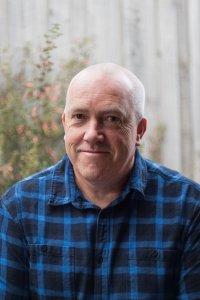Michael Winkler
Michael Winkler lives in Melbourne. His most recent book is Grimmish (Puncher & Wattmann). He was the winner of the 2016 Calibre Essay Prize.
Aboriginal and Torres Strait Islander viewers are advised that the following article contain depictions of people who have died.
Philip Larkin famously suggested that ‘they fuck you up, your mum and dad’, but the alternative is usually worse. Twenty years before Larkin wrote ‘This Be the Verse’, his compatriot John Bowlby published Maternal Care and Mental Health (1951), which desc ... (read more)
In Alexis Wright’s novel Carpentaria (2006), Girlie claims, ‘If you ever want to find out about anything in your vicinity, you have to talk to the mad people.’ There are a lot of mad people in Wright’s biography of Aboriginal activist, thinker, and provocateur ‘Tracker’ Tilmouth. He is probably the maddest of all, in the Kerouacian sense of ‘mad to live, mad to talk’, but, accordin ... (read more)
In the Australia of my childhood, the Gypsy skirt was fashionable, ABC Radio played Django Reinhardt, ‘The Gypsy Rover’ was in school songbooks, peripatetic players were called ‘Gypsy footballers’, the Gypsy Jokers were a feared bikie gang, and nefarious Gypsies were stock villains in children’s books. Gypsies – or Roma – occupied cultural terrain, but the people themselves had a low ... (read more)
One of the many contradictions of Islamic State, as exposed in Robert Manne’s latest work, is that a mob seemingly dedicated to deeds rather than words is in fact logocratic. For all of their murderous antipathy towards the People of the Book, Islamic State has relied not on speeches or policy platforms, but on a succession of books.
While some trace the genealogy of Islamic State to Muhammad i ... (read more)
Gambling is part of Australia’s self-definition. The way we like to tell the story, lads at Gallipoli went over the top with a two-up kip in one hand and a rifle in the other, while exchanging tips for the Melbourne Cup. This national myth of betting derring-do, full of heroic punts and back-slapping celebrations, bears scant resemblance to the modern reality of Australian gambling. Our monument ... (read more)
There is a well-meaning musician who performs intermittently in Central Australia. When he plays his hit song, he tries to augment the lyrics by chanting the word ‘strong’ in local language. In fact, he is singing a similar word that means urine. Presumably he thinks the audience’s laughter connotes delight rather than derision.
Benign intentions, botched communication, a messy outcome. Int ... (read more)
At the bottom of one of Kim Mahood's desert watercolours, she scrawled, 'In the gap between two ways of seeing, the risk is that you see nothing clearly.' A risk for some, but not Mahood. Her work as a visual artist and writer attests to an eye that is unfailing and a lifetime of looking. The subtle gradations and veristic detail of Position Doubtful attest to sustained attentive observation.
... (read more)
The history of my onomastic apprehension and misapprehension about the big thing in the middle of Australia: It is called Ayers Rock. No, it is Uluru. I am pronouncing Uluru incorrectly. It is wrong to use the name Uluru. It's not even called Uluru anyway. I do not know what to call it.
Which is also my own progression, in microcosm: initial awareness; learning; evaluation and relearning; doubt ... (read more)

